The Counsellor is a cinematic room divider: some people will like it, saying it is stylish and daring. Others will find it truncated, slick and pretentious. Whichever room you end up in, The Counsellor has a tang of its own. This violent, colorful thriller overflows with bravado and, like matching collars and cuffs, identical foreboding. The motto here is that bad things happen to bad people but when they're bad people we sort of like, it's different.
Ridley Scott’s latest thriller is the first original screenplay written by novelist Cormac McCarthy. The author, responsible for No Country For Old Men among many others, had the original screenplay published in October and it differs from the finished film in several ways, as most screenplays will. (Hardly anyone locks down a script these days.) What is interesting about this is that it stresses the difference between the media – books are not films nor vice versa. The story can be enjoyed, differently, either way.
The audience know they're in trouble. But as this is McCarthy, we'll hang on
The plot is easy to follow even if there is little explanation for those not paying attention. Counsellor is the handsome and successful lawyer (Michael Fassbender) at the centre of this crime thriller. About to wed his beautiful, understanding girlfriend (Penélope Cruz), he becomes embroiled in an enormous drug deal. Meanwhile, his pro bono work brings him into contact with a female convict (Rosie Perez) whose son is put in jail for speeding. He's carrying $12K on an expensive bike and he's in jail for a $400 fine? The audience can smell the heady stink of “get the heck out of there”. Counsellor cannot. After all, he just bought an enormous diamond for his lady from Bruno Ganz, who explains how diamonds are rated. In many ways, it's the happiest part of the film.
 Meanwhile, peculiar gangster type Reiner (Javier Bardem) and his even stranger girlfriend, Malkina (Cameron Diaz, pictured with Cruz), have so much money to burn that she has silver fingernails and they spend the whole day watching a pair of tame cheetahs chase hares over the plains. A deeper discussion includes the line, "I think truth has no temperature." Hearing this, the audience know they're in trouble. But as this is McCarthy, we're attempting art, so we'll hang on. Oh, that “car scene” – Diaz’s character rubs herself against a windscreen - is not as shocking as it sounds. Reiner’s reaction, however, is worth the ticket price. The whole sequence is sexy, off-putting and hilarious.
Meanwhile, peculiar gangster type Reiner (Javier Bardem) and his even stranger girlfriend, Malkina (Cameron Diaz, pictured with Cruz), have so much money to burn that she has silver fingernails and they spend the whole day watching a pair of tame cheetahs chase hares over the plains. A deeper discussion includes the line, "I think truth has no temperature." Hearing this, the audience know they're in trouble. But as this is McCarthy, we're attempting art, so we'll hang on. Oh, that “car scene” – Diaz’s character rubs herself against a windscreen - is not as shocking as it sounds. Reiner’s reaction, however, is worth the ticket price. The whole sequence is sexy, off-putting and hilarious.
Enter Nudie-wearing drug dealer Brad Pitt who is testing out that "know when to fold ‘em" quote from the song The Gambler. He decides, after telling Counsellor how much trouble he’s in, to escape his life of crime and, presumably, go straight. But when there’s $20 million worth of cocaine from Juárez, this is not so easy.
Cold and calculating and too deft for the cheap seats, The Counsellor starts out with a stellar cast and a lot of class – from its production design to its cinematography. But it is a hard sell: a cold story with cold people in it, in a world that is ruthless, harsh and cruel. To paraphrase Thomas Hobbes, some may think The Counsellor is nasty, brutish and short - clearly edited down to 117 minutes. But it could also be called mysterious, upsetting and alluring. The jury’s still out. It may be for some time.
BRAD PITT’S BIG MOMENTS
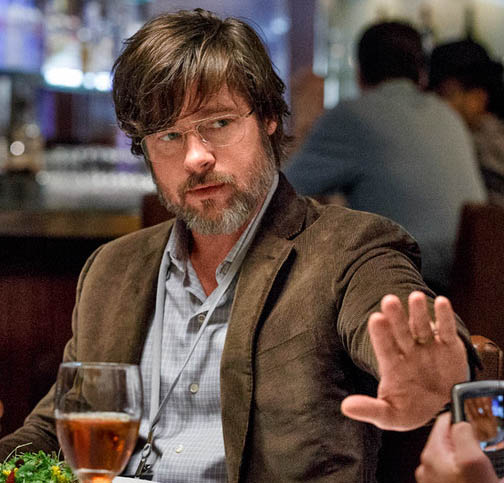 Allied. Doomed but entertaining attempt to revive 1940s Hollywood
Allied. Doomed but entertaining attempt to revive 1940s Hollywood
Fury. David Ayer and Brad Pitt take the war film by the scruff of the neck
Inglorious Basterds. Pitt is gloriously absurd in Tarantino WW2 alternative history
Killing Them Softly. Brad Pitt cleans up an almighty mess in Andrew Dominik’s high-calibre crime ensemble
Moneyball. How Billy Beane created a revolution in Major League baseball
The Big Short. Pitt’s on the money as director Adam McKay successfully makes a drama out of a crisis
The Tree of Life. Terrence Malick’s elliptical epic leads us through time, space and one family’s story
PLUS ONE TURKEY
World War Z. It's World War with a Zee as Brad Pitt battles the undead and a zombie script
Overleaf: watch the trailer to The Counsellor
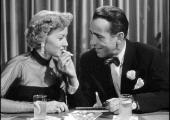



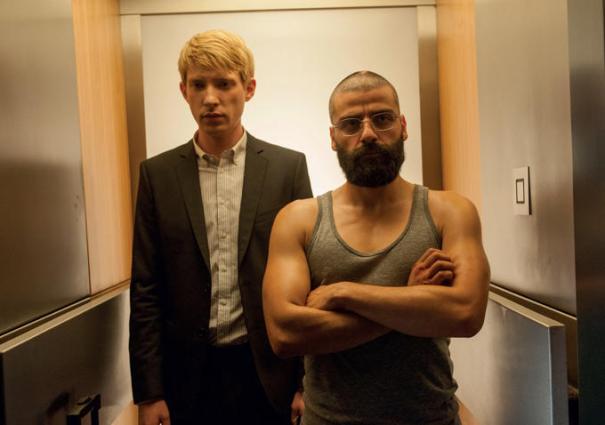 Mind games and regular injections of intriguing ideas maintain a steady grip, while claustrophobic corridors keep the budget cannily low. The question of who has a soul also exercised Garland in his adaption of his friend Kazuo Ishiguro’s clone dystopia
Mind games and regular injections of intriguing ideas maintain a steady grip, while claustrophobic corridors keep the budget cannily low. The question of who has a soul also exercised Garland in his adaption of his friend Kazuo Ishiguro’s clone dystopia  Ex Machina’s novelty isn’t in its concept, but its social detail. Isaac’s Nathan embodies the internet geek as alpha male. The Mozart of computer coding by the age of 13, he speaks with the post-hippie informality beloved by Apple and Google, but pumps iron, has eyes cold with control, and lives in a Bond villain’s retreat, much as one imagines Bill Gates did. He has replaced Google with his own Bluebook by improving on the philosophy of search engines, tracking why we search, not what. When Caleb asks if Ava’s face was based on his porn profile, and Nathan mentions hacking into every mobile phone on the planet, the crazy dystopia we already live in is alarmingly clear. Nathan seems just the sort to have his hand on the virtual tiller: a mix of Dr. Frankenstein, Dr. Moreau, internet activist and corporate raider (and Bill Gates...).
Ex Machina’s novelty isn’t in its concept, but its social detail. Isaac’s Nathan embodies the internet geek as alpha male. The Mozart of computer coding by the age of 13, he speaks with the post-hippie informality beloved by Apple and Google, but pumps iron, has eyes cold with control, and lives in a Bond villain’s retreat, much as one imagines Bill Gates did. He has replaced Google with his own Bluebook by improving on the philosophy of search engines, tracking why we search, not what. When Caleb asks if Ava’s face was based on his porn profile, and Nathan mentions hacking into every mobile phone on the planet, the crazy dystopia we already live in is alarmingly clear. Nathan seems just the sort to have his hand on the virtual tiller: a mix of Dr. Frankenstein, Dr. Moreau, internet activist and corporate raider (and Bill Gates...).
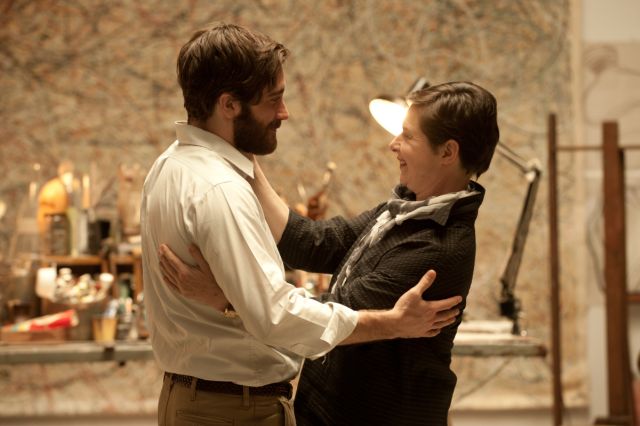 For now, let me just say that I admired Enemy more than I warmed to it, and that there are numerous other movies whose deeper resonances seem to me more immediately worth mining (Lynch's Mulholland Drive to name but one). But whether you tune out to this movie or (as some are said to have been) are freaked out by it, there's no denying the absolute command of Gyllenhaal, who over time has learned to put his puppyish appeal to one side in favour of a more forceful, declarative style of performance that should serve him in good stead as he gets older and less obviously "cute". Think of this as part of Gyllenhaal's thespian insurance plan for an ever more varied screen future.
For now, let me just say that I admired Enemy more than I warmed to it, and that there are numerous other movies whose deeper resonances seem to me more immediately worth mining (Lynch's Mulholland Drive to name but one). But whether you tune out to this movie or (as some are said to have been) are freaked out by it, there's no denying the absolute command of Gyllenhaal, who over time has learned to put his puppyish appeal to one side in favour of a more forceful, declarative style of performance that should serve him in good stead as he gets older and less obviously "cute". Think of this as part of Gyllenhaal's thespian insurance plan for an ever more varied screen future. 

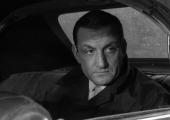
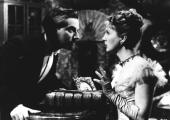

 Meanwhile, peculiar gangster type Reiner (Javier Bardem) and his even stranger girlfriend, Malkina (Cameron Diaz, pictured with Cruz), have so much money to burn that she has silver fingernails and they spend the whole day watching a pair of tame cheetahs chase hares over the plains. A deeper discussion includes the line, "I think truth has no temperature." Hearing this, the audience know they're in trouble. But as this is McCarthy, we're attempting art, so we'll hang on. Oh, that “car scene” – Diaz’s character rubs herself against a windscreen - is not as shocking as it sounds. Reiner’s reaction, however, is worth the ticket price. The whole sequence is sexy, off-putting and hilarious.
Meanwhile, peculiar gangster type Reiner (Javier Bardem) and his even stranger girlfriend, Malkina (Cameron Diaz, pictured with Cruz), have so much money to burn that she has silver fingernails and they spend the whole day watching a pair of tame cheetahs chase hares over the plains. A deeper discussion includes the line, "I think truth has no temperature." Hearing this, the audience know they're in trouble. But as this is McCarthy, we're attempting art, so we'll hang on. Oh, that “car scene” – Diaz’s character rubs herself against a windscreen - is not as shocking as it sounds. Reiner’s reaction, however, is worth the ticket price. The whole sequence is sexy, off-putting and hilarious.

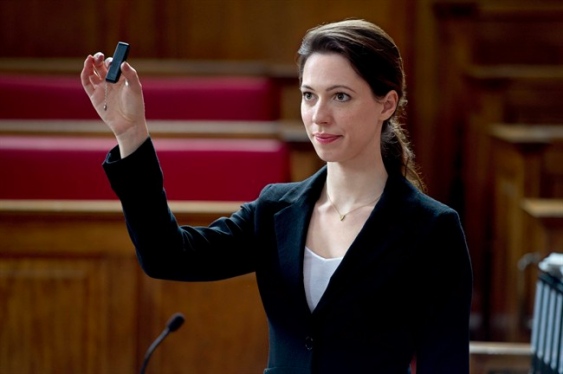 Bana and Hall (pictured right) are excellent as ex-lovers Martin Rose, the defence for surviving bomb plotter Farroukh Erdogan (Denis Moschitto), and Claudia Simmons-Howe, the Special Advocate defending him in closed court. The potential for abuse and fundamental unjustness of the latter process when dealing with alleged terrorists is one of the film’s most fascinating themes, if it only had the courage to stick with it. Aussie Bana particularly enjoys Rose’s blowhard articulacy, barely hiding bitter vulnerability after a work-wrecked marriage, and theatre aristocrat Hall (Sir Peter’s daughter) matches his comfort at posh, powerful sparring. Riz Ahmed’s nervy, dangerously idealistic MI5 man, Ann-Marie Duff as his venomous boss and Jim Broadbent’s oily Attorney General (pictured below), with so many Tory and New Labour apparatchiks to inspire him as he bullies and lies with a beaming smile, are also fine. But though writer Knight’s work include London thrillers Eastern Promises and Dirty Pretty Things and Brum gangland saga Peaky Blinders, there are leaden lines the cast deserve danger money for lifting.
Bana and Hall (pictured right) are excellent as ex-lovers Martin Rose, the defence for surviving bomb plotter Farroukh Erdogan (Denis Moschitto), and Claudia Simmons-Howe, the Special Advocate defending him in closed court. The potential for abuse and fundamental unjustness of the latter process when dealing with alleged terrorists is one of the film’s most fascinating themes, if it only had the courage to stick with it. Aussie Bana particularly enjoys Rose’s blowhard articulacy, barely hiding bitter vulnerability after a work-wrecked marriage, and theatre aristocrat Hall (Sir Peter’s daughter) matches his comfort at posh, powerful sparring. Riz Ahmed’s nervy, dangerously idealistic MI5 man, Ann-Marie Duff as his venomous boss and Jim Broadbent’s oily Attorney General (pictured below), with so many Tory and New Labour apparatchiks to inspire him as he bullies and lies with a beaming smile, are also fine. But though writer Knight’s work include London thrillers Eastern Promises and Dirty Pretty Things and Brum gangland saga Peaky Blinders, there are leaden lines the cast deserve danger money for lifting. Closed Circuit’s head-thumping improbability as a thriller also stands in stark contrast to its great efforts at legal realism. MI5’s reasons for a post-bombing cover-up which develops into an attempted mid-trial massacre of anyone who knows what they’ve been up to are convincingly extreme, and the idea of British agents being so ruthless on British streets is usefully challenging. James Bond’s sprint down Whitehall to protect the liberty of the British state in Skyfall is turned inside-out. But when the intended victims are Julia Stiles’ top New York Times reporter, and Bana and Hall’s elite lawyers on what is repeatedly called the Trial of the Century, Stalin’s KGB seem better candidates for the job. As blundering hitmen attack our heroes the night before the trial, a phone-call to any newspaper would make their deaths instantly unthinkable. D-notices be damned. They’d have to blow up the printing presses (and the internet) to stop that coming out.
Closed Circuit’s head-thumping improbability as a thriller also stands in stark contrast to its great efforts at legal realism. MI5’s reasons for a post-bombing cover-up which develops into an attempted mid-trial massacre of anyone who knows what they’ve been up to are convincingly extreme, and the idea of British agents being so ruthless on British streets is usefully challenging. James Bond’s sprint down Whitehall to protect the liberty of the British state in Skyfall is turned inside-out. But when the intended victims are Julia Stiles’ top New York Times reporter, and Bana and Hall’s elite lawyers on what is repeatedly called the Trial of the Century, Stalin’s KGB seem better candidates for the job. As blundering hitmen attack our heroes the night before the trial, a phone-call to any newspaper would make their deaths instantly unthinkable. D-notices be damned. They’d have to blow up the printing presses (and the internet) to stop that coming out.